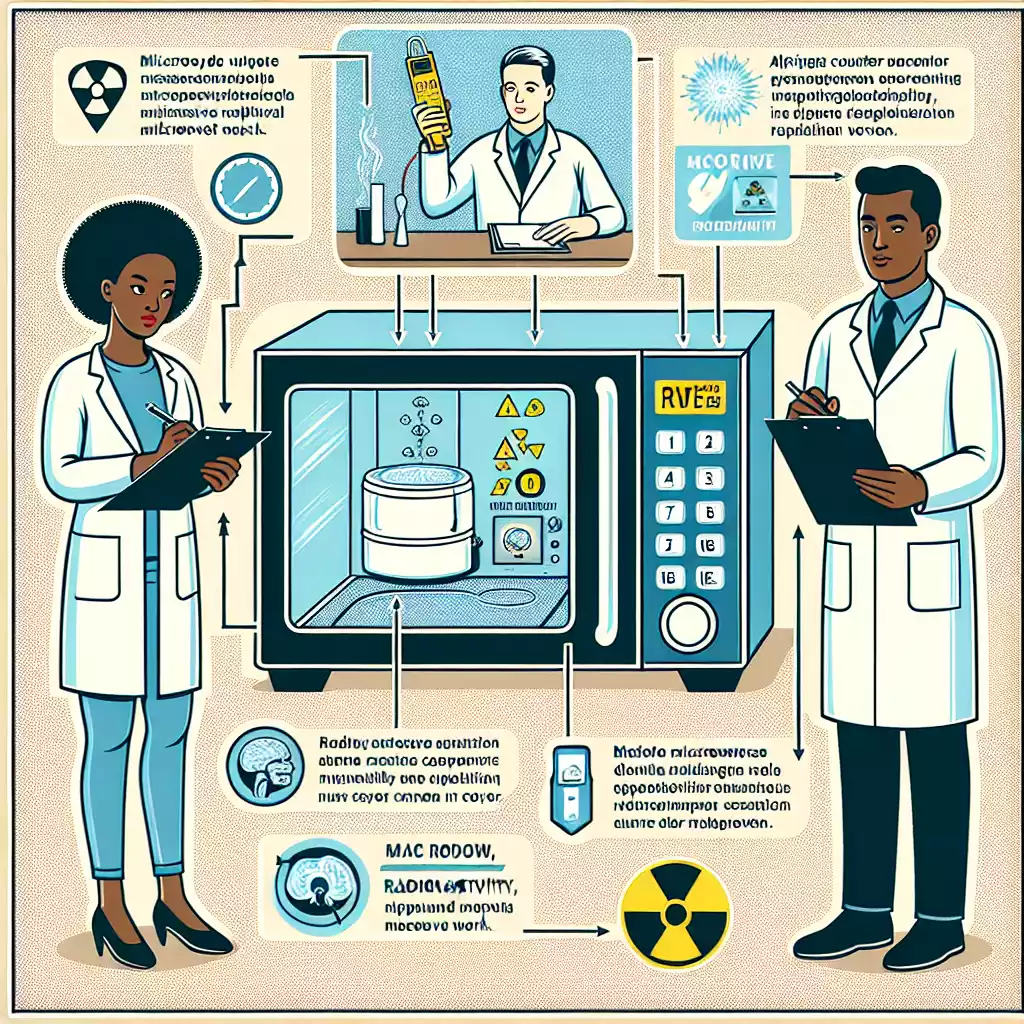Understanding Microwaves
What Are Microwaves?
Microwaves are a type of electromagnetic radiation with wavelengths ranging from one meter to one millimeter. They fall between radio waves and infrared radiation on the electromagnetic spectrum. Commonly used in household microwave ovens, they heat food by causing water molecules to vibrate, producing thermal energy.
History of Microwave Ovens
The microwave oven was invented accidentally by Percy Spencer in 1945. While working with radar technology, Spencer noticed a chocolate bar in his pocket had melted. This led to the development of the first commercial microwave oven, which revolutionized cooking and food preparation.
How Microwaves Work
Microwave Radiation Explained
Microwaves operate by emitting radiation that interacts with water, fats, and sugars in food. This interaction causes the molecules to vibrate rapidly, generating heat that cooks the food. This process is different from conventional ovens, which cook food from the outside in.
The Cooking Process in a Microwave
Microwave ovens use a magnetron to produce microwaves, which are directed into the cooking chamber. These waves bounce around and penetrate the food, cooking it quickly and efficiently. This method is particularly effective for reheating and defrosting.
Health Concerns Related to Microwaves

Microwave Radiation and Human Health
One of the primary concerns about microwaves is the potential health effects of radiation exposure. However, microwave ovens are designed to contain the radiation within the appliance. As long as the door seals properly and the oven is not damaged, the risk of exposure is minimal.
Common Myths About Microwaves and Health
There are several myths surrounding microwaves, such as the belief that they cause cancer or that they make food radioactive. These myths are unfounded. Scientific studies have shown that microwaves do not alter the molecular structure of food in a way that would make it harmful.
Scientific Studies on Microwave Safety
Key Research Findings
Numerous studies have investigated the safety of microwave ovens. The consensus among researchers is that when used correctly, microwaves are safe. For example, a study by the World Health Organization concluded that microwaves do not pose significant health risks.
Long-term Exposure Effects
Long-term exposure to microwave radiation, such as standing directly in front of a microwave oven, has not been shown to cause harm. The radiation levels emitted by microwaves are far below the threshold that would cause tissue damage or other health issues.
Microwaves and Nutrient Retention
Nutrient Loss in Microwave Cooking
A common concern is whether microwaving food destroys its nutrients. While some nutrients can be lost during cooking, microwaving often preserves more nutrients compared to boiling or frying. This is because microwaves cook food quickly, reducing the time nutrients are exposed to heat.
Comparing Microwaves to Other Cooking Methods
When compared to other cooking methods, microwaves often come out on top in terms of nutrient retention. Steaming and microwaving are considered the best methods for preserving vitamins and minerals in vegetables.
Safety Measures for Microwave Use
Proper Microwave Usage
To ensure safe use, follow these tips:
• Do not operate a damaged microwave.
• Use microwave-safe containers.
• Avoid metal objects inside the microwave.
• Follow the manufacturer’s instructions.
Avoiding Microwave Hazards
Avoid common hazards by:
• Not overheating water, which can cause superheating and burns.
• Not using sealed containers, which can explode.
• Regularly checking the door seal for damage.
Environmental Impact of Microwaves
Energy Consumption
Microwave ovens are generally energy-efficient compared to conventional ovens. They use less electricity because they cook food faster. However, their impact on the environment depends on how often they are used and the source of the electricity.
Disposal and Recycling
Proper disposal of microwave ovens is important to reduce environmental impact. Many components can be recycled, but they should be taken to a designated e-waste recycling facility to ensure they are handled correctly.
Common Microwave Issues and Solutions
Microwave Malfunctions
Common issues include:
• Microwave not heating: Could be due to a faulty magnetron.
• Turntable not rotating: Often caused by a worn-out motor.
• Sparking inside the microwave: Usually due to metal objects or food debris.
Simple Maintenance Tips
Keep your microwave in good condition by:
• Cleaning it regularly to prevent buildup.
• Inspecting the door seal for wear and tear.
• Using a microwave cover to prevent splatters.
Alternatives to Microwave Cooking
Traditional Cooking Methods
Traditional methods like baking, boiling, and grilling can be used as alternatives to microwaving. Each method has its own benefits and can be more suitable for different types of food.
Modern Cooking Appliances
Modern appliances such as air fryers and instant pots offer convenient alternatives to microwaves. They provide quick cooking times and can often preserve nutrients better than some traditional methods.
FAQs About Microwave Safety
FAQ 1: Can microwaves cause cancer?
No, microwaves do not cause cancer. They do not have enough energy to damage DNA or cause cellular changes that lead to cancer.
FAQ 2: Is it safe to stand near a microwave?
Yes, it is safe to stand near a microwave. Modern microwaves are designed to contain radiation within the appliance.
FAQ 3: Do microwaves destroy nutrients in food?
Microwaves can cause some nutrient loss, but they often preserve more nutrients than other cooking methods due to shorter cooking times.
FAQ 4: Are microwave-safe plastics really safe?
Microwave-safe plastics are designed to withstand microwave heat without releasing harmful chemicals. Always check labels to ensure the plastic is microwave-safe.
FAQ 5: What should never be microwaved?
Avoid microwaving metal objects, sealed containers, and certain foods like eggs in their shells, as they can explode.
Conclusion: Summarizing Microwave Safety
Microwaves are a convenient and safe way to cook food when used correctly. They offer several benefits, including energy efficiency and nutrient retention. By following safety guidelines and debunking common myths, you can confidently use your microwave without worry.

